Plants
-
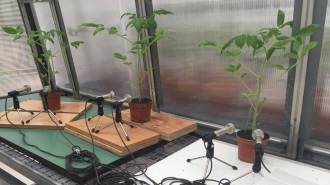 Plants
PlantsStressed plants make ultrasonic clicking noises
Tomato and tobacco plants emit high frequency sounds, which could one day find a use in agriculture, as a way to detect thirsty crops.
By Meghan Rosen -
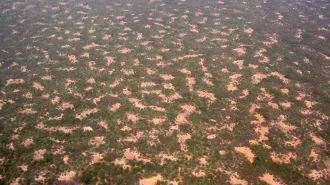 Math
MathChia seedlings verify Alan Turing’s ideas about patterns in nature
New experiments confirm that complex patterns in plants emerge from a model proposed by mathematician Alan Turing.
-
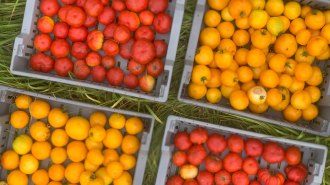 Agriculture
AgricultureDry farming could help agriculture in the western U.S. amid climate change
Some farmers in the western United States are forgoing irrigation, which can save on water and produce more flavorful fruits and vegetables.
-
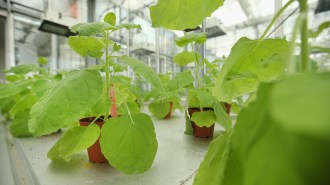 Life
LifePlant/animal hybrid proteins could help crops fend off diseases
Pikobodies, bioengineered proteins that are part plant and part animal (thanks, llamas), loan plant immune systems a uniquely animal trait: flexibility.
-
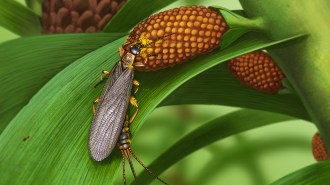 Paleontology
PaleontologyThe oldest known pollen-carrying insects lived about 280 million years ago
Pollen stuck to fossils of earwig-like Tillyardembia pushes back the earliest record of potential insect pollinators by about 120 million years.
By Sid Perkins -
 Life
LifeChemical signals from fungi tell bark beetles which trees to infest
As fungi break down defensive chemicals in trees, some byproducts act as signals to bark beetle pests, telling them which trees are most vulnerable.
By Freda Kreier -
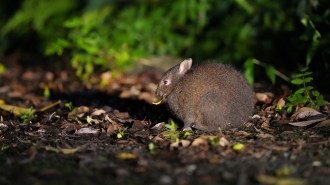 Animals
AnimalsA rare rabbit plays an important ecological role by spreading seeds
Rabbits aren’t thought of as seed dispersers, but the Amami rabbit of Japan has now been recorded munching on a plant’s seeds and pooping them out.
-
 Plants
PlantsWhy dandelion seeds are so good at spreading widely
Individual seeds on a dandelion flower are programmed to let go for a specific wind direction, allowing them to spread widely as the wind shifts.
-
 Ecosystems
EcosystemsA Caribbean island gets everyone involved in protecting beloved species
Scientists on Saba are introducing island residents to conservation of Caribbean orchids, red-billed tropicbirds and urchins.
By Anna Gibbs -
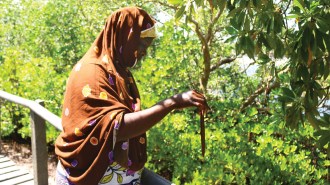 Climate
ClimateHow Kenyans help themselves and the planet by saving mangrove trees
Communities in Kenya took action to restore their coastal mangrove forests, reaping economic and environmental benefits. Others are following suit.
-
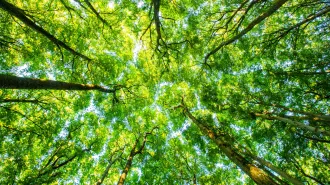 Plants
PlantsThe worldwide water-lifting power of plants is enormous
The energy used per year by the world’s plants to lift sap rivals the amount of energy generated by all hydroelectric dams, a new study suggests.
By Sid Perkins -
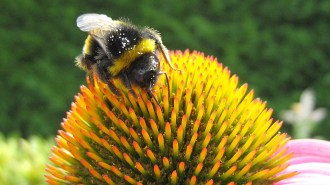 Environment
EnvironmentFlower shape and size impact bees’ chances of catching gut parasites
Bumblebees have higher chances of contracting a gut parasite from short, wide flowers than from blooms with other shapes, experiments show.